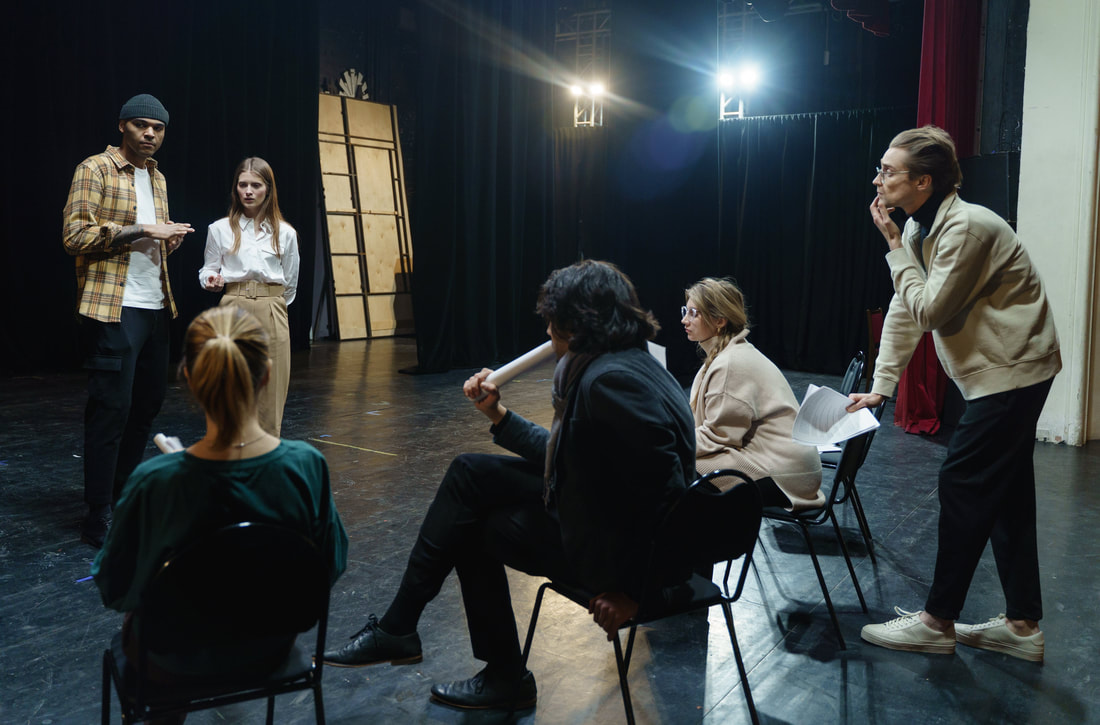|
‘We don’t have a plane crash scheduled for today, but I thought I’d take you through the emergency procedures just in case.’ (KLM Air Hostess) I love the difference that a sense of humour can make. The air hostess (above) made everyone laugh during the passenger safety briefing on a return flight from the Netherlands today. The airline’s own plane had experienced maintenance problems so it had had to borrow one from another airline. One hostess complained, with a glint in her eye, that the green décor didn't match the blue colour of her uniform. The passengers all laughed when another hostess made an announcement too, aiming to draw our attention to an apparent information light on the plane…only to correct herself moments later with, ‘Oh – this plane doesn’t have one!’ Brilliant. It took the terror out of the turbulence. On a more serious note, I had been in the Netherlands to work with a diverse NGO leadership team, to support its desire to enhance its international teamwork. I referenced briefly a couple of places in the Bible where the writer comments on the amazing potential of human diversity – where the Divine whole is seen, known and experienced to be more than the sum of its parts – yet also hints at the corresponding dark risks of undervaluing, fragmentation and conflict if not. Strikingly, the writer moves on in both places to emphasise a deep need for authentic love as the critical success factor. This insight set a spiritual-existential tone for the day, as we reflected on team-as-relationships. Returning to the plane – but this time as a metaphor, a participant from South Africa asked, ‘How many separate parts is a Boeing 747 aircraft made up of?’ Apparently, the answer is about 6,000,000. ‘And what do these diverse components all have in common?’ Puzzled faces all round now. ‘None of them can fly.’ I thought this was genius. What a great way to dispel the myth of the all-sufficient self in the face of the dynamic complexities of teams, organisations and wider world. We worked through an Appreciative Inquiry next, drawing on positives of the past and aspirations of the present to co-create shared trust and vision for the future. Set the trajectory. Fasten seatbelts. Enjoy the flight.
16 Comments
‘For me, revolution simply means radical change.’ (Aung San Suu Kyi) I heard a well-known pop psychologist on the radio this week, talking about his new book about how to make your New Year’s resolutions stick. He invited the listeners to buy his book in order to learn more. I didn’t do that, but it did bring to mind a number of things I’ve noticed over the years as I work with people, teams and organisations. I will share a couple of insights here that may be of interest and useful – and I promise not to ask you to buy anything. The first is how hard it can be to make significant and sustainable changes to habitual patterns of thought and-or behaviour. A wise friend, Ian Henderson, illustrates this simply by inviting people to fold their arms. Next, he invites them to fold their arms in the opposite direction. (I found this harder than I had imagined). He goes on to invite them to reflect on what routine they always use to dry themselves after a shower. We are creatures of habit. That’s OK when the routines serve us and-or others well. If, however, people become trapped in, for instance, patterns of tension or stress, if often demands more than fresh thinking, determined effort or will-power to change it. So, here’s the second. Try disrupting the physical context in which it takes place; for instance: meet in a different room or location; use different chairs; sit in different places to where you normally sit; stand up rather than sit down. I worked with a team that felt trapped in conflict. They invited me to help them work through it so I asked that we hold our first meeting where and at the time at which they normally met. When we did so, I asked them where they normally sit, including in relation to each other. (‘Exactly where we are now’). At the next meeting, I changed the time and, before participants arrived, rearranged the room completely, then invited them to sit somewhere different. The shift in group dynamics was remarkable. Disrupting the times and room configuration created enough of a change to enable the team to hold a different spirit, style and type of conversation. This, in turn, helped team members to relax enough to consider and create new possibilities. It released the stuck-ness and enabled a breakthrough of sorts that wouldn’t have been possible by thinking or talking alone. (Like this idea? Look out for my new book…) I spent 5 years learning French, 4 years learning German, 3 years learning Greek, 2 months learning to teach English and 1 year learning Hebrew. I've also learned a smattering of words and phrases in languages as diverse as Japanese, Arabic, Spanish, Filipino and BSL. Whereas traditional language-learning often focuses primarily on vocabulary, grammar and pronunciation, I find myself especially interested in social-psychological dimensions such as confidence, context and culture. Manoeuvring between languages often calls for a nuanced interpretation rather than simple translation, paying attention to, say, intention, meaning and relationship before mechanics like spelling or word order. I find there are similar dynamics at play in other (and equally-complex) human-relational arenas such as leadership, teamwork, coaching and facilitation. Psychoanalyst Carl Jung commented astutely: ‘Learn your theories as well as you can, but put them aside when you touch the miracle of the living soul.’ Textbook techniques will take us so far, yet real transformation often emerges through the sensitive manifestation of human-spiritual qualities in our relationships and practice including: presence, contact and trust. This calls us continually to explore questions such as, ‘What does this person (or group) need in this situation at this time?’ This is very different to a simple, ‘If X, do Y.’ As we enter the New Year, I’m aware of so many complex challenges that are impacting dramatically on people, communities, organisations, nations and the entire natural-environmental ecosystem. In such circumstances, it can be tempting to grasp hold of simplistic, mechanistic solutions that, we hope, will help us to feel less anxious, less vulnerable and less out-of-control. We may risk closing in on ourselves to defend and protect those beliefs, behaviours and interests that provide us with a sense of reassurance, safety and security. In 2023, I hope and pray, with open mind and heart, that I will stay close to the call-principles that guide my practice: prayer, presence, participation. How about you? Happy New Year! Light shines in darkness. We can be hope. How are you finding online leadership, OD, coaching and training? What are the pros and cons and how are you making it work? Pav Ponnoosami blogged satirically this week that, during the lockdown, ‘The bedroom has become the boardroom’. As we find ourselves staring at each other on screen, we often see a backdrop, a glimpse of a person’s home life, an insight into the person-beyond-the-role. I find myself intrigued by the different things I see-hear that lay behind: books on the shelf; flowers on the desk; photos on the wall; a child that stumbles in unexpectedly, asking for attention. They all add context, meaning. Yet is an online relationship a real relationship? I’ve certainly never spent so much time with clients and colleagues on Zoom as I have done during this past few weeks. Is it real? The question itself begs at least two underlying questions: what constitutes an authentic relationship, and what do we mean by real? We could of course apply the same two questions to evaluate encounters and interactions between people in the real world; that is, the world that we think of as real, not just the virtual one. So, some thoughts. Can an online conversation allow us to know and understand each other better? Yes, although I will know someone better if I see and experience them acting-interacting in a range of different situations and relationships. Can it enable effective task communication? Yes, if both-all parties have access to suitable and stable technologies. Can it enable practical teamwork to achieve a common purpose? Yes, if all have equal access. Can it build friendship or love? What do you think? |
Nick WrightI'm a psychological coach, trainer and OD consultant. Curious to discover how can I help you? Get in touch! Like what you read? Simply enter your email address below to receive regular blog updates!
|







 RSS Feed
RSS Feed